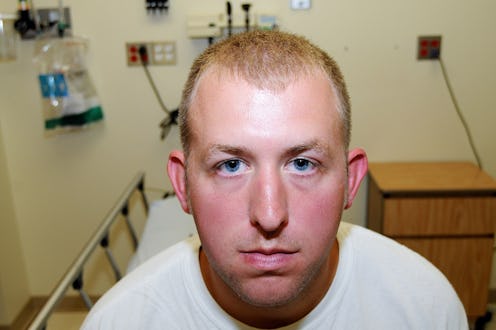News
The Ferguson Police Failed Darren Wilson
Darren Wilson pulled the trigger. No one made him do it. On the night of August 9, 2014, Officer Wilson chose to kill an unarmed 18-year-old in Ferguson, Missouri. And with that shot, he announced the advent of a colossal movement for justice. Within minutes, Wilson morphed into a symbol of oppression and police brutality. The overarching complication, however, is that though Darren Wilson failed Michael Brown, the Ferguson Police Department (FDP) failed Wilson, and therefore all of the black community.
A newly-released 20-month investigation by the Department of Justice (DOJ) reveals that the St. Louis County Family Court's juvenile justice system treats black youths far worse than whites. The DOJ released a separate report in March that investigated the Ferguson Police Department, which said, "This emphasis on revenue has compromised the institutional character of Ferguson’s police department ... Further, Ferguson’s police and municipal court practices both reflect and exacerbate existing racial bias, including racial stereotypes." Wilson has become a figure that Americans need to play the villain in this story, but he is only one example of how the police department failed those whom it swore to serve.
A new profile on Wilson by The New Yorker revealed that he was one of the most ready-to-learn officers in the department. Field training Officer Mike McCarthy said, "Darren was probably the best officer that I’ve ever trained — just by his willingness to learn.” But what happens when the system he was so eager to learn from is deeply flawed? He learns to kill.
The DOJ revealed that officers in Ferguson engaged in a pattern of unconstitutional stops and arrests, violated the First Amendment, and often used excessive force — all disproportionately directed at African-Americans. They broke down the trust of the black community by issuing them 90 percent of all citations and using force on them in 88 percent of cases in which officers reported using force.
Wilson had been a police officer for six years at the time of the shooting, four of which he spent in Ferguson. He started work at a town near Ferguson in 2009, and told The New Yorker, "I’d never been in an area where there was that much poverty.” He also said that he felt intimidated by residents. There's obviously an enormous disconnect between officer and civilian, and no attempt by the police department to integrate the two.
The FPD has a huge lack of training, and not just on racial issues. Many officers reported having little to no training on when to issue a warrant. The DOJ also reported a lack of training on how to engage with youths when monitoring schools, how to limit force, how to avoid implicit bias, and how to treat those afflicted with mental health conditions or intellectual disabilities. A lack of accountability is also among its list of faults.
Wilson is not the only FPD officer who did not live up to DOJ expectations. He said in the interview that he remembered a fellow policeman who was called because a woman was screaming outside. The policeman forced her to the ground and handcuffed her when she had been having an anxiety attack.
The DOJ report told the story of another officer who threatened to cite African-American parents for letting their children urinate in the bushes of a park. The mother asked if he had to detain the father in front of the kids, and he told the father, "You’re going to jail because your wife keeps running her mouth.” She began filming him, and he yelled at her, then arrested the father for "parental neglect." The mother followed and kept videotaping. The officer arrested her for a traffic violation and deleted the footage from her phone.
The injustice goes into the court system as well. The DOJ's report of the juvenile system revealed that there was disparate treatment of black children. They are 1.46 times more likely than white children to have their cases handled formally, and 2.5 times more likely to be detained.
This problem is more than just one officer, and there's more than just one problem. It's an entire system comprised of countless institutions that have racism so deeply ingrained within that it seems impossible to extricate it. Brown could have been shot by any one of the officers in this department, or by any one of the officers in this country. However, Wilson was not a puppet. Although the department let him down, he had his own failings.
He failed when he didn't stand up to a faulty institution. He failed when he was intimidated and unprepared to interact with the people of his own community. Almost a year later, he failed when he told The New Yorker about Brown, "Do I think about who he was as a person? Not really, because it doesn’t matter at this point." And of course, he failed millions of people — including one black teenager — when he took that fatal shot.
Images: Getty Images (4)
